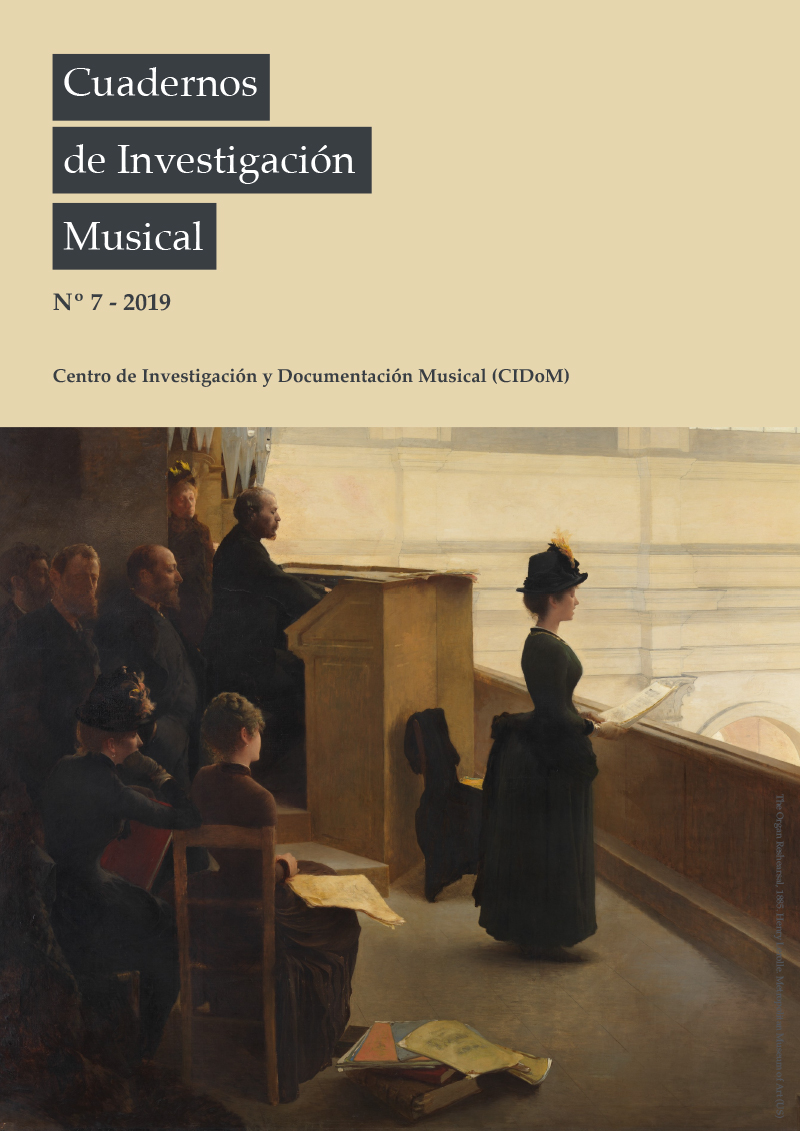Francisco Andreví (*1786; †1853) between France and Spain: musical composition and social implications in the first half of the 19th century. Part I. A Vital Path up: from the Pyrenees to the South. From La Seu d'Urgell to the Royal Chapel
Main Article Content
Abstract
Paradigm of a religious composer of the Hispanic Eighteenth Century, the Catalan Francisco Andreví (*1786; †1853) probably has been —and perhaps till very recently— one of those who has suffered the most from the prejudices of later historiography. “Militant” priest associated with the most radical and conservative environment of the first Carlism —which led him into exile— his abundant production has not yet deserved a single monographic audio record. And all this, in spite of the enormous social visibility that he reached at the time, like maestro de capilla of the Spanish Royal Chapel and active musician in the Paris of Berlioz, Cherubini and many others. In his facet as a composer, he won all the oppositions he attended (Segorbe, Santa Maria del Mar, the cathedrals of Valencia and Seville, the Spanish Royal Chapel or, in his last stage, the church of Our Lady of Mercy in Barcelona). In the meantime, during his stay in France, he ruled the musical magisterium of the cathedral of Bordeaux, and then the organ of the Parisian church of Saint Pierre de Chaillot. But, as a man of his time, not only devoted himself to religious music, but also cultivated instrumental music (orchestral and chamber music), frequenting the halls and theatres both in Madrid and Paris, and teaching classes in the first conservatory of Madrid. A friend of Rossini, who later became interested in him, the author of operas Auber praised in writing his well-known Treatise on Composition, published in Madrid, Barcelona and Paris, which was considered as an academic model by Spanish creators until the end of the 19th century. But over time, he was unjustly seen as an example of a type of Spanish music self-indulgent and debtor of the Italian opera, being relegated to oblivion. The attractiveness of his career and his "politically incorrect" professional profile mean that today, from the most strict and dispassionate historical and musicological positioning, it is now possible to review his contribution to the international musical scene of the moment.
Article Details
Los autores de los artículos mantienen el copyright, no recibirán ninguna contraprestación económica por el trabajo y el mismo siempre será reconocido como exclusivamente suyo. La revista se compromete a proteger la integridad y originalidad del artículo, así como los derechos de autor que correspondan. Los autores son los únicos responsables del material, textos e imágenes que utilizan en sus respectivos trabajos, debiendo respetar siempre los derechos de autor de terceras personas, por lo que la revista no se hace responsable de lo contenido en este tema respecto al trabajo de los autores.
